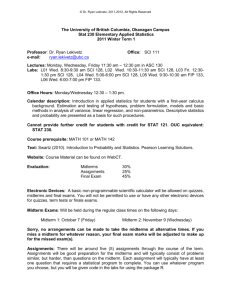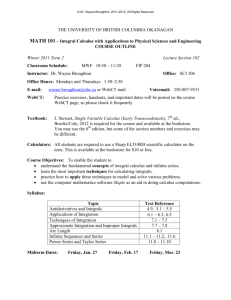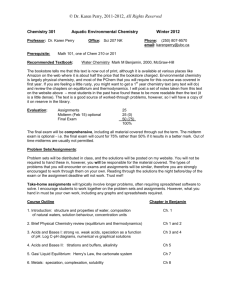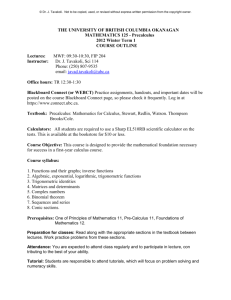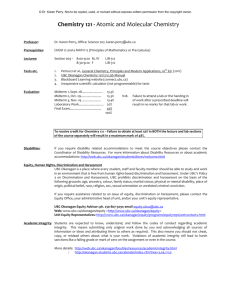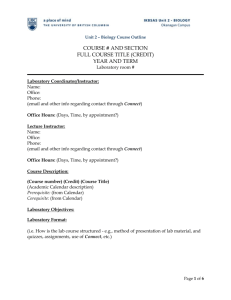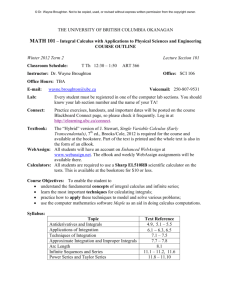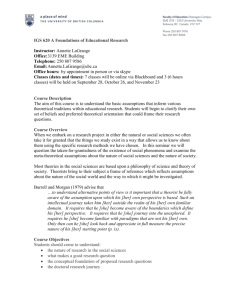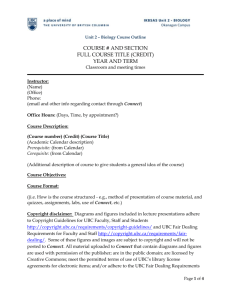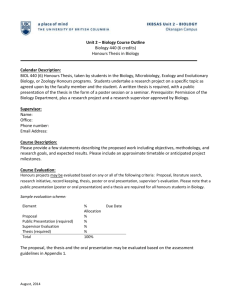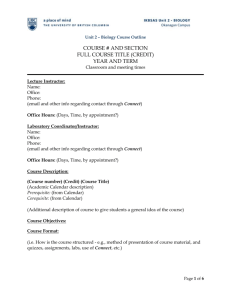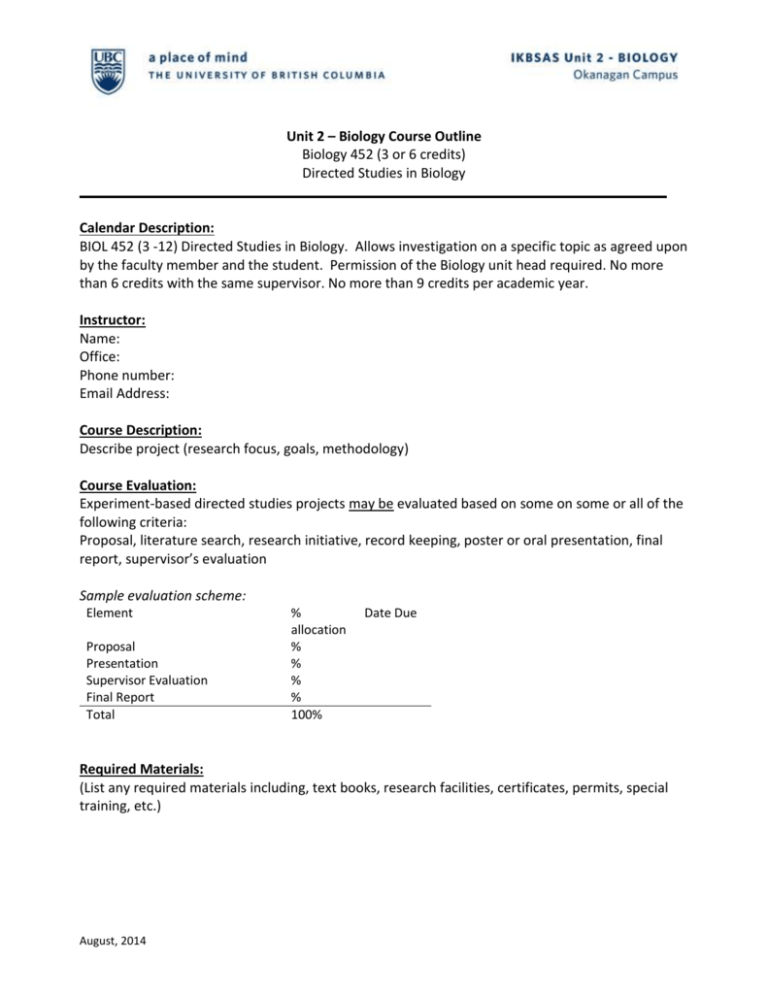
Unit 2 – Biology Course Outline
Biology 452 (3 or 6 credits)
Directed Studies in Biology
Calendar Description:
BIOL 452 (3 -12) Directed Studies in Biology. Allows investigation on a specific topic as agreed upon
by the faculty member and the student. Permission of the Biology unit head required. No more
than 6 credits with the same supervisor. No more than 9 credits per academic year.
Instructor:
Name:
Office:
Phone number:
Email Address:
Course Description:
Describe project (research focus, goals, methodology)
Course Evaluation:
Experiment-based directed studies projects may be evaluated based on some on some or all of the
following criteria:
Proposal, literature search, research initiative, record keeping, poster or oral presentation, final
report, supervisor’s evaluation
Sample evaluation scheme:
Element
Proposal
Presentation
Supervisor Evaluation
Final Report
Total
%
allocation
%
%
%
%
100%
Date Due
Required Materials:
(List any required materials including, text books, research facilities, certificates, permits, special
training, etc.)
August, 2014
Special Circumstances:
Late Reports: Except in exceptional circumstances and pre-arranged cases, late reports are
subject to a penalty as determined by the supervisor.
Attendance: Students are expected to regularly meet with their primary supervisor.
(Please provide written guidelines regarding missed deadlines, missed meetings, and late
submission. Include agreed upon penalties etc.)
Academic Integrity:
The academic enterprise is founded on honesty, civility, and integrity. As members of this
enterprise, all students are expected to know, understand, and follow the codes of conduct
regarding academic integrity. At the most basic level, this means submitting only original work
done by you and acknowledging all sources of information or ideas and attributing them to others
as required. This also means you should not cheat, copy, or mislead others about what is your
work. Violations of academic integrity (i.e., misconduct) lead to the break down of the academic
enterprise, and therefore serious consequences arise and harsh sanctions are imposed. For
example, incidences of plagiarism or cheating may result in a mark of zero on the assignment or
exam and more serious consequences may apply if the matter is referred to the President’s
Advisory Committee on Student Discipline. Careful records are kept in order to monitor and
prevent recurrences.
A more detailed description of academic integrity, including the policies and procedures, may be
found at:
http://okanagan.students.ubc.ca/calendar/index.cfm?tree=3,54,111,0
If you have any questions about how academic integrity applies to this course, please consult with
your professor.
Disability Assistance:
If you require disability-related accommodations to meet the course objectives, please contact the
Coordinator of Disability Resources located in the Student Development and Advising area in the
University Centre building. For more information about Disability Resources or academic
accommodations, please visit the website at:
http://www.ubc.ca/okanagan/students/drc/welcome.html
August, 2014
Equity, Human Rights, Discrimination and Harassment:
UBC Okanagan is a place where every student, staff and faculty member should be able to study
and work in an environment that is free from human rights-based discrimination and harassment.
Under UBC’s Policy 3 on Discrimination and Harassment, UBC prohibits discrimination and
harassment on the basis of the following grounds: age, ancestry, colour, family status, marital
status, physical or mental disability, place of origin, political belief, race, religion, sex, sexual
orientation or unrelated criminal conviction.
If you require assistance related to an issue of equity, discrimination or harassment, please contact
the Equity Office or your administrative head of unit.
UBC Okanagan Equity Advisor: ph. 250-807-9291; email equity.ubco@ubc.ca
Web: www.ubc.ca/okanagan/equity
Unit Equity Representatives:
http://www.ubc.ca/okanagan/equity/programs/equityreps/unitcontacts.html
August, 2014


